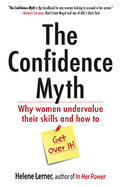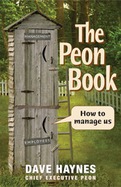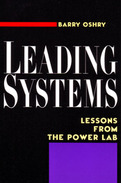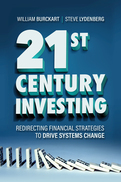2015
When Aspen Baker had an abortion at the age of twenty-four, she felt caught between the warring pro-life and pro-choice factions, with no safe space to share her feelings.
This enhanced edition includes a video of Aspen sharing her personal story, but it also includes videos of the women and men who've been profoundly changed by the movement Aspen founded. As you watch and listen, you will see how the Pro-Voice movement can be a game-changer. Through deep listening, storytelling, and embracing gray areas, the movement has generated love, empathy and support on both sides of America's most controversial issue.
In this hopeful and moving book, Baker describes how she and Exhale, the organization she cofounded, developed their “pro-voice” philosophy and the creative approaches they employed to help women and men have respectful, compassionate exchanges about even this most controversial of topics. She shows how pro-voice can be adopted by anyone interested in replacing ideological gridlock with empathetic conversation. Peace, in this perspective, isn't a world without conflict but one where conflict can be engaged in—fiercely and directly—without dehumanizing ourselves or our opponents.
2015
"The Confidence Myth is the handbook for any woman looking to succeed in her career."
-- Barbara Corcoran, real estate mogul and star of ABC's Shark Tank
We need more women at the highest levels in business, government, and nonprofits-and there is no time to waste. The problem, says Helene Lerner, isn't so much that women lack confidence but that they misunderstand what confidence really is.
True confidence isn't fearlessness; it's having the courage to move forward while your knees are shaking. Any woman waiting until she has enough confidence with a capital C to act never will. Lerner lays out practical strategies for beating this confidence myth, drawing on her own and other female leaders' experiences and on her survey of over 500 working women. You'll learn how to present your best self no matter how you feel inside, welcome even brutal feedback as a tool to hone your skills, avoid spreading yourself too thin by saying "no" strategically, and much more. The book features dozens of Confidence Sparks, simple but powerful exercises and techniques to catapult your career to the next level.
The playing field is not level and gender inequities persist, but the women interviewed in this book have found ways to navigate through it, and you can, too. The key to success is seizing the opportunity and acting now. Helene Lerner is here to act as your personal coach as you silence the "mad mind chatter" and take risks, speak out, and step up.
2004
- Not written by an "expert"-learn from a living, breathing employee what does and doesn't work to get him motivated and productive
- Funny, irreverent, fast moving, and written in a direct, in-your-face style
- Packed with real-life examples that show the actual, sometimes unintended, effects of management actions on employees
Management books are traditionally written by industry "experts": scholars, consultants, senior managers. They're writing about how to manage workers, but none of these experts really understands the viewpoint of the average worker, the regular grunt in the trenches-the peon. Peons are the ones affected when a manager decides to manage-in-one-minute, to move somebody's cheese, to try that fifth discipline. Rather than consult some expert, why not go to the source, and ask the peons? Who better to teach you how to train a dog than the dog himself? And who better to tell you how to manage than one of those who are being managed? The Peon Book gives managers the perspective they've been lacking. Author and self-proclaimed Chief Executive Peon Dave Haynes' sole, powerful source of expertise is that he has been managed in different companies and in different industries, and he knows what worked-and what failed catastrophically. In irreverent, straight-talking terms, Haynes tells managers what they really need to do to make their employees motivated, committed, and productive-and it's not memorizing yet another "technique" or "strategy" or "discipline." Haynes writes in a common sense, easy-to-read style that is both witty and wise. Every boss can benefit, and every employee can empathize with the words in The Peon Book. "The inability to empathize can be a real speed bump on the road to a trusting, personal relationship with your employees. So how are you supposed to show more empathy? I take issue with management books that give you a phrase to say to show empathy like 'I understand,' or 'I know what you mean,' or that say that by rephrasing a statement you can show empathy. Don't use some coined phrase to show empathy, just mentally put yourself in our shoes. Sometimes it's just a matter of remembering what it's like to have to get all those reports turned in on a Friday. Or remembering what it's like to have to ask for time off. Or remembering what it's like to be the new guy on the job, and have a hard time remembering everything. Do you see the key concept I'm getting at? Empathy = remembering. Who said you'd never use math in the real world?"
- Not written by an "expert"-learn from a living, breathing employee what does and doesn't work to get him motivated and productive
- Funny, irreverent, fast moving, and written in a direct, in-your-face style
- Packed with real-life examples that show the actual, sometimes unintended, effects of management actions on employees
2004
For over thirty years, Barry Oshry has uncovered core truths about how we operate in large organizations through the Power Lab, an experiential program that has been called "The World Series of Leadership Development Activities." In Leading Systems, Oshry reveals the lessons he has derived from his Power Lab experiences-experiences that have been central to his innovative insights about human systems and system leadership.
Oshry maintains that the next evolutionary challenge for human beings is to recognize ourselves as system creatures, see how system processes shape our experiences, and develop the knowledge and skills to master these processes rather than be victims of them. Drawing on his Power Lab experiences, he reveals the possibilities of systems leadership and how effective leadership can provide the basis for creating sane, healthy, effective social systems.
Challenging conventional thinking, Oshry shows the limitations of consensus, the importance of unilateral action, and the restrictions that our values-such as egalitarianism, liberalism, conservatism-can place on power. He reveals how the problems we often believe are personal or peculiar to our system or circumstances are in fact systemic, limiting the possibilities of both individuals and the system as a whole-and he demonstrates what it takes to break out and elevate ourselves and our systems to higher levels of possibility.
Perhaps most importantly, Oshry shares his experience in discovering what he calls "exhilarating concepts," and shows how these concepts offer unusual insights into the nature of systems, shedding light on everything from organizational dysfunction to the conflicts that occur along lines of race, gender, sexual orientation, and ethnicity. It is only through this deep knowledge, Oshry says, that system leaders can elevate their systems to those higher levels of possibility to which we aspire.
Offering new directions, Leading Systems is essential reading for anyone who wants a deep understanding of how systems work and how to exert enlightened leadership.
- Accessible, full of real-life examples, and beautifully written by a pioneer in systems thinking
- A systems framework based not on hopes and dreams but on thirty years of research on what systems really are
- Speaks to leadership in the family, community, organization, and nation
Everyone knows collaboration creates high performing teams and organizations—and with today's diverse, globalized workforce it's absolutely crucial. Yet it often doesn't happen because people and groups typically believe that the problem is always outside: the other team member, the other department, the other company. Bestselling author Ken Blanchard and his coauthors use Blanchard's signature business parable style to show that, in fact, if collaboration is to succeed it must begin with you.
This book teaches people at all levels—from new associates to top executives—that it's up to each of us to help promote and preserve a winning culture of collaboration. The authors show that busting silos and bringing people together is an inside-out process that involves the heart (your character and intentions), the head (your beliefs and attitudes), and the hands (your actions and behaviors). Working with this three-part approach, Collaboration Begins with You helps readers develop a collaborative culture that uses differences to spur contribution and creativity; provides a safe and trusting environment; involves everyone in creating a clear sense of purpose, values, and goals; encourages people to share information; and turns everyone into an empowered self-leader.
None of us is as smart as all of us. When people recognize their own erroneous beliefs regarding collaboration and work to change them, silos are broken down, failures are turned into successes, and breakthrough results are achieved at every level.
It's time for a new way to think about investing, one that can contend with the complex challenges we face in the 21st century.
Investment today has evolved from the basic, conventional approach of the 1950s. Investors have since recognized the importance of sustainable investment and have begun considering environmental and social factors. Yet the complexity of the times forces us to recognize and transition to a third stage of investment practice: system-level investing.
In this paradigm-shifting book, William Burckart and Steve Lydenberg show how system-level investors support and enhance the health and stability of the social, financial, and environmental systems on which they depend for long-term returns. They preserve and strengthen these fundamental systems while still generating competitive or otherwise acceptable performance.
This book is for those investors who believe in that transition. They may be institutions, large or small, concerned about the long-term stability of the environment and society. They may be individual investors who want their children and grandchildren to inherit a just and sustainable world. Whoever they may be, Burckart and Lydenberg show them the what, why, and how of system-level investment in this book: what it means to manage system-level risks and rewards, why it is imperative to do so now, and how to integrate this new way of thinking into their current practice.


























